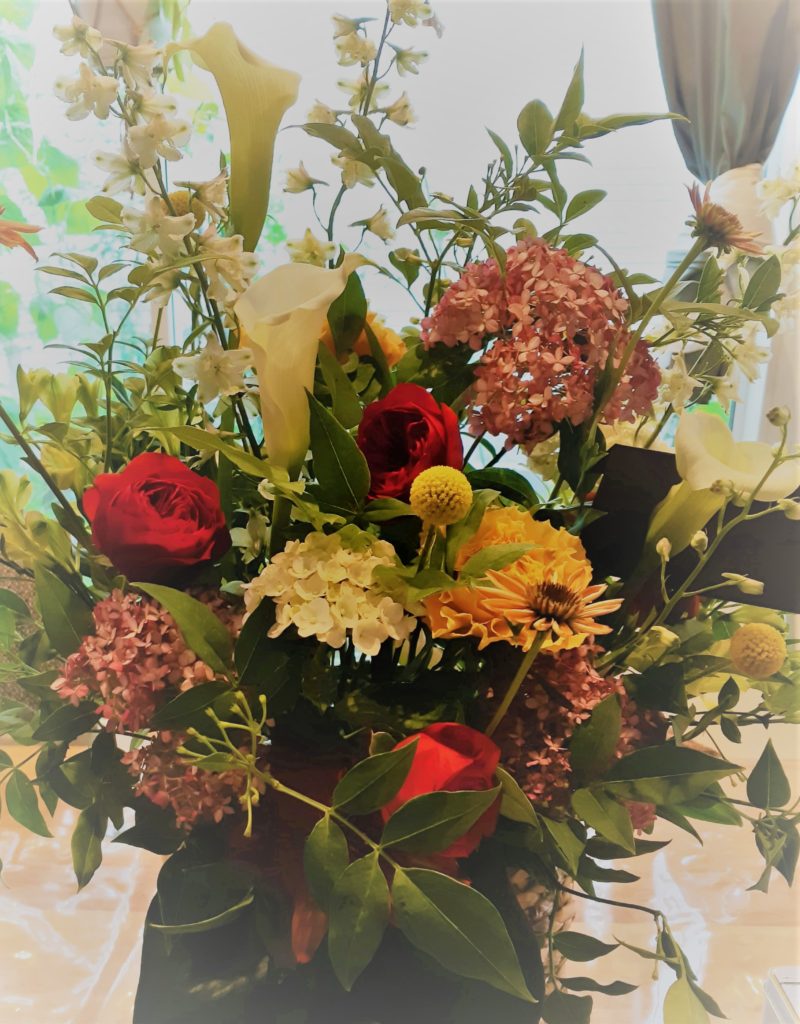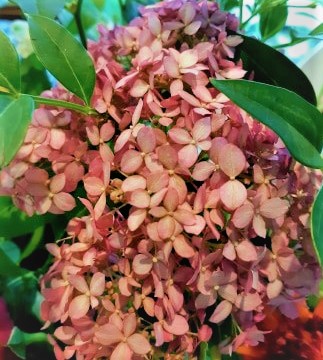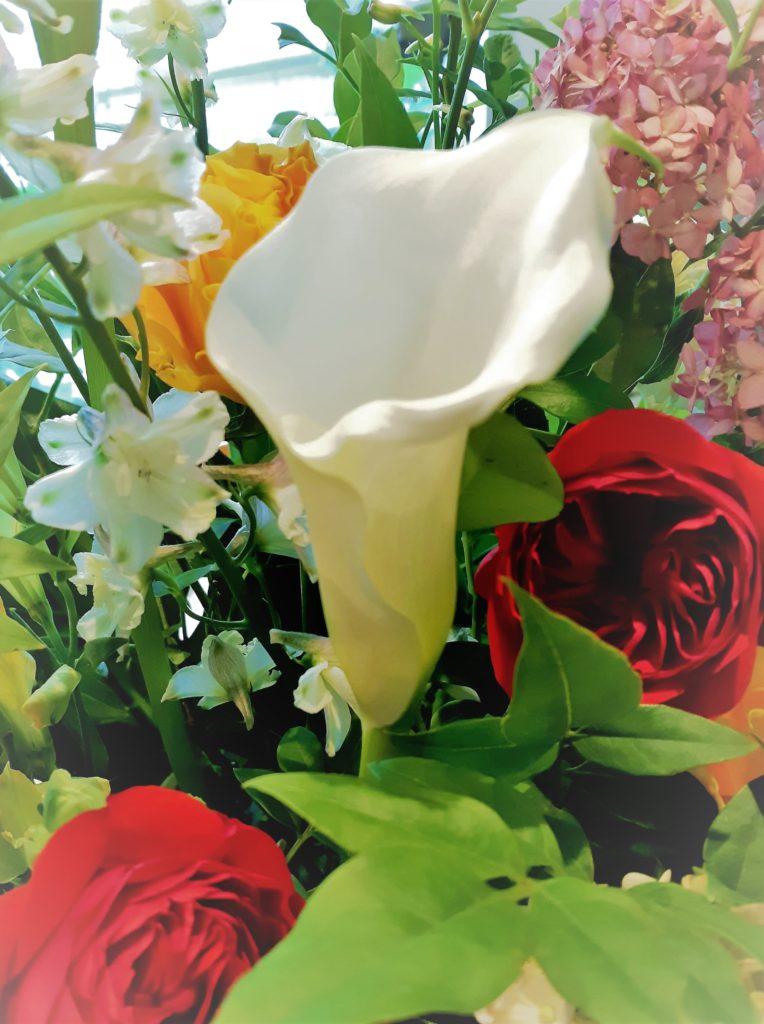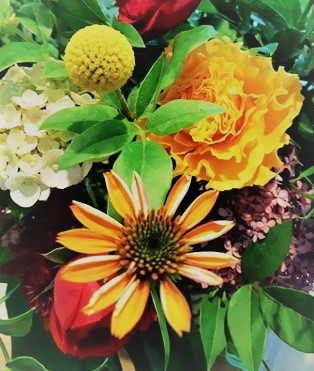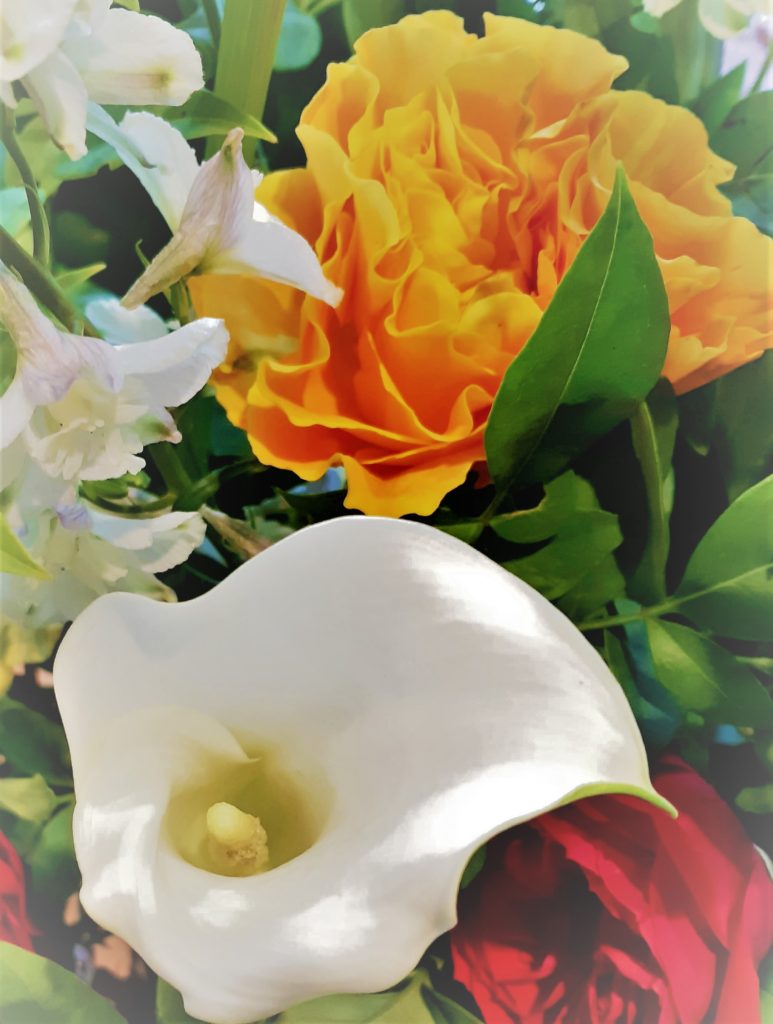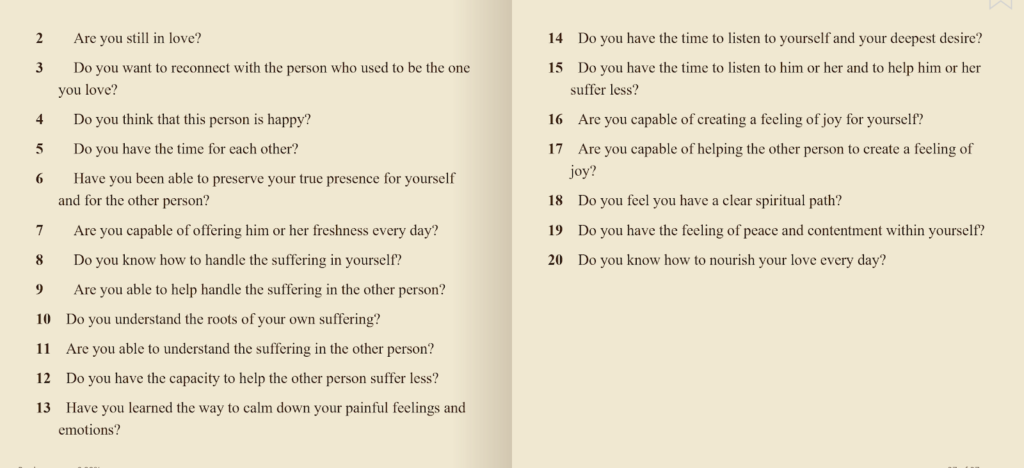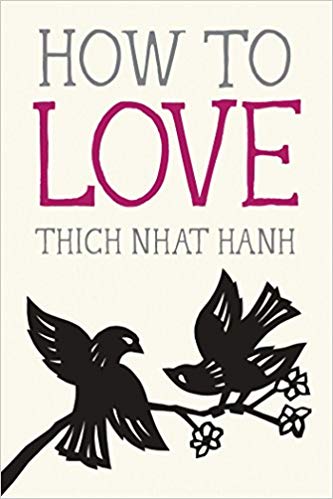Romance was something I took for granted. It took moving across the world and being in an intercultural marriage to magnify how it was something significant and needed in my life. As a generalization, romance, where I live, is very practical- it is something done before marriage. After the ring is slipped on the finger and the union is legally binding, the demonstrative accouterments of love quickly drop. Historically speaking, that was the natural way of things- romance was the bait to snag marriage. Marriage was a merger that fulfilled one or some purpose related to an economic, political, social, and/or reproductive telos. My Primary tells me he always has and continues to be satisfied in our relationship while I have expressed for a long time that I was dissatisfied. I have tried to convince myself that our life together was enough and that I should act as the “ideal” wife but failed. Of course, I failed, culture can inform what fulfills us and brings happiness and we were reading from different manuals for very different concepts.
In her book Happily Ever After: The Romance Story in Popular Culture (2016), Catherine M. Roach asserts that “happiness and fulfillment, American pop culture’s resounding answer is through the narrative of romance, sex, and love.” Further, romance stories provide guidelines to how relationships should be and is a compelling narrative dictating (North) American culture.
These scripted guidelines clarify my predicament; I thought I was tougher and beyond romance. Romance has never been an appealing genre for me; it seemed shallow, unnecessary, and demeaning for women. Yet suddenly, for the first time in my four+ decades of existence, I am like a cartoon character who has heart-shaped pupils boinging out of their sockets with a valentine shaped ticker that is bursting forth from my chest. I am in a constant state of liquifying when I am with Co-Primary. If he is in sight, I can’t find an edge to make rough if I tried. His love makes me soft, safe, and shapeless. I love loving him, and I love feeling loved by him. Our relationship is so satisfying that it calms me, makes me feel secure, makes every day special, and gives me something to look forward to. I write this and am rolling my eyes at myself; this love has transformed me into food adjectives: flakey, corny, cheesy. And I am enjoying every minute of it! The romance script with Co-Primary can be viewed as a shared precept that reflects where we are both from (we grew up remarkably close to each other), it is powerfully attractive due to a common ideal. It speaks to me in my emotional language.
Culture and Romance Scripts: My discord is real. Romance expectations vary from individual to individual, but even more so when cultural conventions are so diametrically different. My Primary is a generous, kind, hard-working partner. Culturally speaking, he has performed his romance script flawlessly. His action of being a good provider for his family is the dominant narrative in this traditional, patriarchal society I live in; thus, he has done what was expected. I am the reprobate by not accepting the script of the society I live in- I couldn’t adjust to the culture, I wanted a career, wanted to be partners in running the home, have support when I asked and not be the only child-caregiver. Besides, I wanted him around and to be a BFF. In other words, I wanted something beyond the practical. Being with Co-Primary suggests that the something more is contained in my culture romance scripts. I know that I have expected too much from one person, and it may be something fed to me from the notes of Americana.
At first consideration it would be easy to clump English speaking western cultures together when it comes to ideas of romance narratives; however when McAlister (2018) compared love scripts in Australian and American media by analyzing episodes of the Bachelor and Bachelorette she found American scripts had lofty, result-driven goals- everything happened with extravagance and speed- the “happy-ever-after.” In contrast, the Australian version of the same show suggested that Aussies were practical and wanted a “happy-for-now.” Those can be some challenging, contrasting expectations to handle within two comparable cultures. Language may be a commonality, but when timing first kisses, sexual consummation, and marriage proposals- the two attitudes can lead to misunderstandings and assumptions. Now imagine how much more pronounced the differences would be with a couple whose cultures are antithetical on pretty much every cultural dimension. That would be Primary and me for the past two decades- a lot of misunderstanding, so much butting heads. Enter frame-breaking Co-Primary, and it feels like I am literally on the same page as somebody. It is so easy with him, and I want to figure out why. Where can I read my romance script? Pop music and Disney are a good start as with many North American girls, they were high influencers during my formative years.
My love is like a Backstreet Boy song: First, lets talk about music because I find myself increasingly taking trips down musical lanes with Co-Primary. Thinking about all-boy bands certainly gives me a chance to explore what I am attracted to, as Brabazon (2004) explains, such groups contribute to a young girl’s construction of sexuality and self. Music’s impact on growth and shaping of humans is not limited to young girls. Clarke et al. (2015) state:
For many people, involvement with music can be among the most powerful and potentially transforming experiences in their lives. At the same time, there has been increasing interest in music’s communicative and affective capacities, and its potential to act as an agent of social bonding and affiliation.
The charm of cute, all-guy crooners for a heterosexual female is easy to imagine. Like playing cards of ideal partners- friends each divvy up the musicians, reduces to the one person, who exemplifies all you find attractive, even better you believe you are special andhe is singing and writing just for you. Korean and Japanese entertainment agents have exploited this desire male and females have for a fictional ideal image of a partner who identifies with who we are as individuals. Some, like Japanese all-female musical act AKB47, have dozens of members to cater to all attraction preferences of their audience. One danger is if this curated image (whether by a consultant or in our minds), creates an unrealistic model of love and partnership and prevents the development of realistic, healthy relationships. Personally, due to commentary on lack of relationships and the perversion I have seen in objectifying girls and women, I have seen it primarily as a hazard until I was talking to Co-Primary the other day. I said something that sounded like a line in a Backstreet Boys song, which led to me mumble-sing it, which in turn made me pop it up on YouTube for a fix of the tune. As I listened to it and looked over at him, I realized how Co-Primary makes me feel love in a way that many young starry-eyed youths yearn for. It is a love that I never thought existed in real life. This type of love is reserved for the storytelling realm, meaning entertainment with some learnings to be mined from within it. And so, it hit me; it is both real and scripted- we have a socio-cultural understanding conveyed through music.
Let’s look at this through a couple of studies. Driessen et al (2016) concluded in their research about aging fans of Boyzone that this continuing connection to the music of their youth assists in acknowledging change and also reveals significant personal memories. Our shared music expresses a similar framework about fundamental topics like love, defined by place and time. Likewise, it is a shared starting point to observe where our lives have taken us. Clarke et al. (2015) concluded their survey of studies entitled Music, Empathy, and Cultural Understanding with:
A common thread that runs through most of these positions is the central role of embodiment in empathy. From the most neuroscientifically reductionist approach (e.g., a ‘fundamentalist’ mirror neuron perspective) to the position of Smith or Stokes, a capacity to feel the situation of another underpins the inter-subjective character of empathy/fellow-feeling/sympathy. And arguably it is in this respect that music has ‘special properties.
It is easy to see how profoundly fulfilling these romantic scripts are for two middle-aged adults who have experienced the inevitable knocking around by life. In essence, it serves as a similar grounding of expectations and desires and also offers a shared, felt language of comfort for each other that takes little explanation.
Disney-scripted. Disney has been adjusting the romance script for each American generation for the past few decades. The Disney zeitgeist of my youth was one that straddled the earlier model of the protagoness (yes, I just coined that) with fighting to become a full-fledged protagonist. The protagoness was a domestically concerned, competent caregiver figure whose heroism played back-up singer to the male hero. The nineties is when evidence of female characters such as Belle, and Ariel began to rebel and fight for their own agency. Wood, in 1994, paints a picture of the gender difference media was projecting for young North Americans of my generation:
White males make up two-thirds of the population. The women are less in number, perhaps because fewer than 10% live beyond 35. Those who do, like their younger and male counterparts, are nearly all white and heterosexual. In addition to being young, the majority of women are beautiful, very thin, passive, and primarily concerned with relationships and getting rings out of collars and commodes. There are a few bad, bitchy women, and they are not so pretty, not so subordinate, and not so caring as the good women. Most of the bad ones work outside of the home, which is probably why they are hardened and undesirable. The more powerful, ambitious men occupy themselves with important business deals, exciting adventures, and rescuing dependent females, whom they often then assault sexually; males were seen as powerful, financially successful, intelligent, rational, tough, whereas women were passive, irrational, helpless I see that script in my choices, I tend to go for the emotionally strong, somewhat stoic, wise man. The provider. The successful man- that somewhat fits the bill of what a prince is.(p.g.31)
Of course, I play right into it. I tend to go for the emotionally strong, somewhat stoic, wise men. The provider. The partner who is successful. A prince who will always be more competent, and superior than I. Please don’t get me wrong, I don’t condone any inner damsel in distress, so cross that thought out before it pops in anyone’s head. Moreover, the two men I am in love with are not of archaic mindset- there is not a male-chauvinistic bone in their bodies. These guys are incredibly open, loving, brilliant, and cheerleaders of me. This is more about my inclinations and expectations and their scripted origins. It is just that Co-Primary makes me feel like a Disney princess, and I LOVE IT. Come to think of it, he makes me feel like a Disney prince, too. It has been a game-changer as far as my mental health goes. The deep satisfaction in how we demonstrate our love is exciting, loving, connecting. Whether I like it or not, my love is somewhat scripted and informed by my culture and media, my life and experience are what has made it my own. Time proves that these ideals in the script can be genderless. To be honest with you, most of my friends- regardless of what gender they identify with, are gorgeous, healthy, emotionally strong, wise, intelligent, successful, caring, providers, and are powerful in their own right. Scripts are not sclerotic, accordingly should not be feared or denied their dynamic properties.
Romance offers adventure, intense emotion, and the possibility of finding a perfect mate. Intimacy promises deep communication, friendship, and sharing that will last beyond the passion of new love. (McAlister, 2018).
The biggest takeaway for me while writing this post is that both romance and intimacy are essential. Romance seemed scripted, silly, and counter-intuitive to my ideas of being a woman. I have felt guilty enjoying romance like I am single-handedly hauling the women’s movement back behind the white picket fences of the ’50s. But romance is important and salient to who we are as individuals and how we navigate love relationships. As we age, romance doesn’t need to be dropped; instead, it can be picked up as a tool of empowerment and celebration of existence through its ability to offer excitement and hope.
Clarke, E., Denora, T., & Vuoskoski, J. (2015). Music, empathy and cultural understanding. Physics of Life Reviews, 15, 61–88. doi: 10.1016/j.plrev.2015.09.001
Driessen, Simone & Jones, Bethan. (2016). Love Me For A Reason: An Auto-ethnographic Account of Boyzone Fandom. Journal of the International Association for the Study of Popular Music. 6. 68-84. 10.5429/2079-3871(2016)v6i1.5en.
McAlister, J (2018) What we talk about when we talk about love: declarations of love in the American and Australian Bachelor/ette Franchises, Continuum, 32:5, 643-656, DOI: 10.1080/10304312.2018.1500523
Roach, C. M. (2018). Happily ever after: the romance story in popular culture. Bloomington: Indiana University Press.
Wood, Julia T. 1994. Gendered Media: The Influence of Media on Views of Gender.Chapter 9 in Gendered Lives: Communication, Gender and Culture. Belmont, CA: Wadsworth
